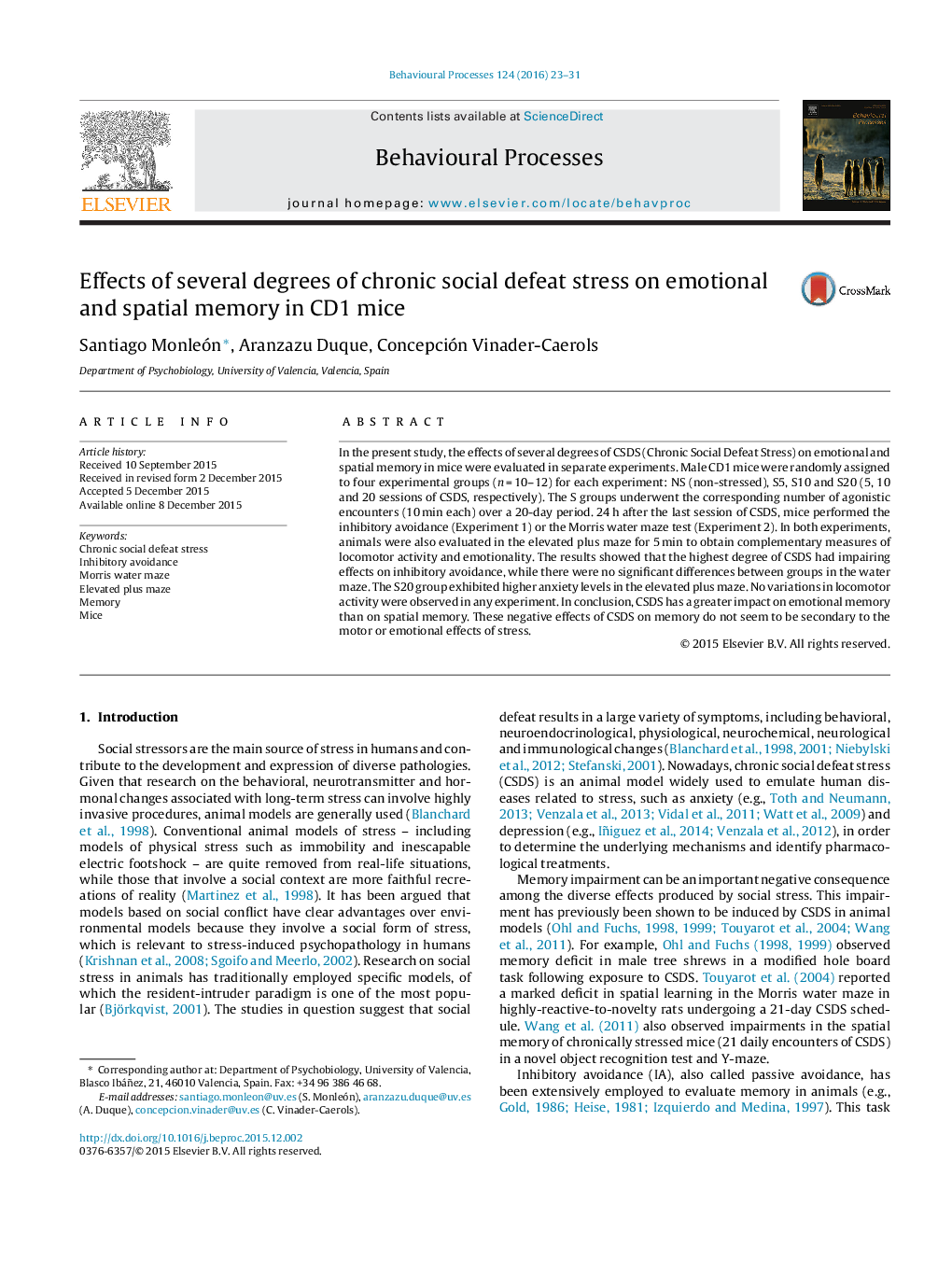| Article ID | Journal | Published Year | Pages | File Type |
|---|---|---|---|---|
| 2426450 | Behavioural Processes | 2016 | 9 Pages |
•A high degree of (chronic social defeat stress) CSDS impairs inhibitory avoidance in mice.•Low or moderate degrees of CSDS have no significant effects on inhibitory avoidance in mice.•CSDS seems not to have significant effects on water maze task in mice.•The effects of CSDS on memory are not secondary to motor or emotional effects of stress.•CD1 has been shown to be a valid strain for the stressed mice in the CSDS protocol.
In the present study, the effects of several degrees of CSDS (Chronic Social Defeat Stress) on emotional and spatial memory in mice were evaluated in separate experiments. Male CD1 mice were randomly assigned to four experimental groups (n = 10–12) for each experiment: NS (non-stressed), S5, S10 and S20 (5, 10 and 20 sessions of CSDS, respectively). The S groups underwent the corresponding number of agonistic encounters (10 min each) over a 20-day period. 24 h after the last session of CSDS, mice performed the inhibitory avoidance (Experiment 1) or the Morris water maze test (Experiment 2). In both experiments, animals were also evaluated in the elevated plus maze for 5 min to obtain complementary measures of locomotor activity and emotionality. The results showed that the highest degree of CSDS had impairing effects on inhibitory avoidance, while there were no significant differences between groups in the water maze. The S20 group exhibited higher anxiety levels in the elevated plus maze. No variations in locomotor activity were observed in any experiment. In conclusion, CSDS has a greater impact on emotional memory than on spatial memory. These negative effects of CSDS on memory do not seem to be secondary to the motor or emotional effects of stress.
